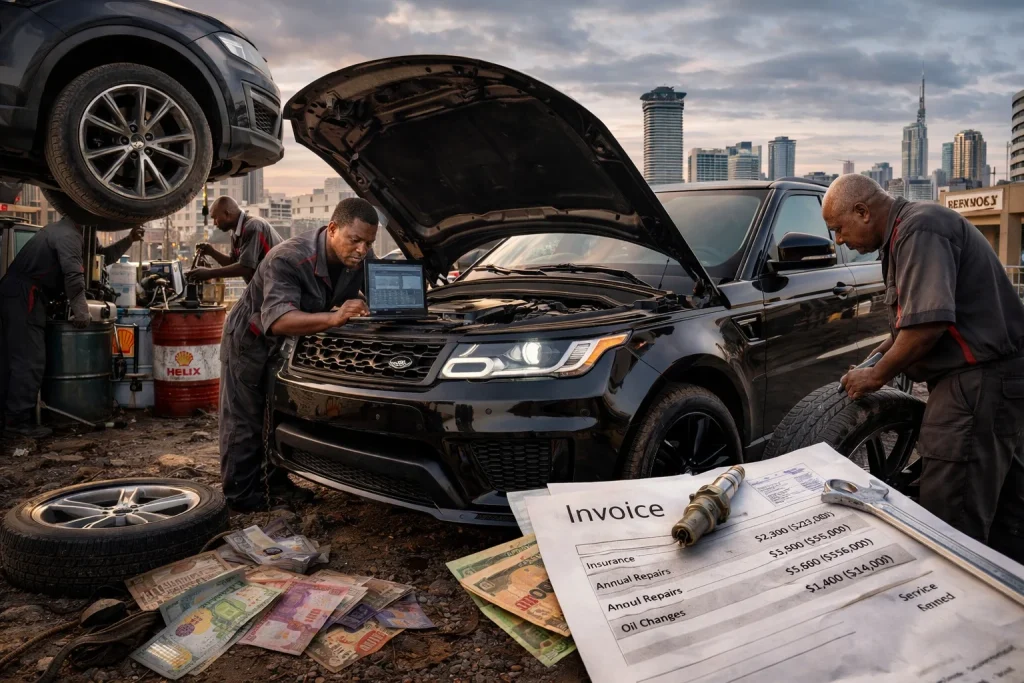Japan’s car auctions are a goldmine for car buyers looking to import quality vehicles at competitive prices. With hundreds of auction houses and thousands of cars up for grabs daily, you can find everything from nearly new models to well-maintained second-hand cars. At Cars Kenya, we specialize in navigating these auctions, helping you secure the best deals. Here’s your guide to understanding how Japanese car auctions work, the different types, and what to look out for.
Types of Japanese Car Auctions
1. Online Auctions
Most cars in Japan are sold through online auctions, which run in real-time and are highly competitive. Auctions start at 9 AM and continue until the last car is sold. Each trade lasts about 10–30 seconds, and buyers must know their maximum price in advance. Bidding begins at the starting price set by the seller, and bids increase in steps of ¥3,000–¥5,000, depending on the auction house.
- Major Online Auction Houses:
IAA, JAA, JU, KAA, KCAA, LAA, MIRIVE, NAA, SAA, TAA, USS, ZIP.
Once a car is purchased, the buyer receives an instant email notification confirming the successful bid.
2. Sealed Bid Auctions
Sealed bid auctions operate differently, allowing buyers to place only one bid without seeing others’ offers. The auction usually runs from morning until evening, with results announced later that day or the next morning. If your bid is the highest, you win the car. Note that once you place your bid, it is binding—you cannot back out.
- Major Sealed Bid Auction Houses:
AEP, IPA, Isuzu, LUM, NAA Nyusatsu, Nissan Osaka, NPS, ORIX, SAKURA, ZERO.
3. One Price Auctions (Dealer Stock)
In One Price auctions, cars are sold at a fixed price, allowing for quick and straightforward purchases without competitive bidding. The buyer agrees to the listed price, making it an ideal option for those who want to avoid the auction process. However, some cars may already be reserved by other buyers or dealers.
4. Negotiations
When a vehicle doesn’t meet its reserve price, it’s marked as unsold. However, buyers can negotiate with the seller, offering at least ¥30,000 above the last bid. This approach provides a second chance to purchase a desired vehicle, though the seller has the right to accept or decline the offer.
Understanding Japanese Auction Grades
Every car in a Japanese auction is inspected and assigned a grade reflecting its overall condition. While these grades offer a quick assessment, it’s important to remember they are subjective, varying between inspectors and auction houses. Always check the detailed inspection notes to get an accurate picture of the vehicle.
Key Auction Grades:
- Grades 7, 8, 9, S: Brand-new cars with only delivery mileage.
- Grade 6: Almost new, with slightly more mileage.
- Grade 5: Excellent condition, resembling new with minor use.
- Grade 4.5: Well-maintained, with moderate mileage.
- Grade 4: Solid vehicles, usually under 100,000 km.
- Grade 3.5: Higher mileage or minor wear, needing some attention.
- Grade 3: High mileage or rough condition.
- Grade 2: Very rough, often with corrosion issues.
- Grade 1: Heavily modified or damaged, such as engine swaps or fire damage.
- Grades R, RA, A, 0: Accident-repaired vehicles, from minor fixes to extensive repairs.
- Ungraded (*):** Sold as-is with minimal information, posing high risk.
Important Points to Consider:
- Subjectivity of Grades:
Different auction houses and inspectors may have varying grading standards. A grade 3.5 at one auction might differ significantly from another. - Focus on Details:
The written inspection notes are more crucial than the grade itself. Always request a translation to understand the vehicle’s true condition. - Broad Categories:
Auction grades are broad and cover a range of conditions. Don’t rely solely on the grade—dive into the inspection report.
Get the Best Deals with Cars Kenya
Navigating Japanese auctions can be overwhelming, but Cars Kenya simplifies the process. We help you review auction sheets, evaluate car conditions, and handle the entire import journey, ensuring you secure top-quality vehicles at the most competitive prices.
Ready to start? Learn more about our step-by-step auction purchase process here.
Visit us at Bishop Magua Centre, Ngong Road, Nairobi, or call/WhatsApp +254713147136 for personalized assistance. Let Cars Kenya guide you to your next great deal from Japanese car auctions




